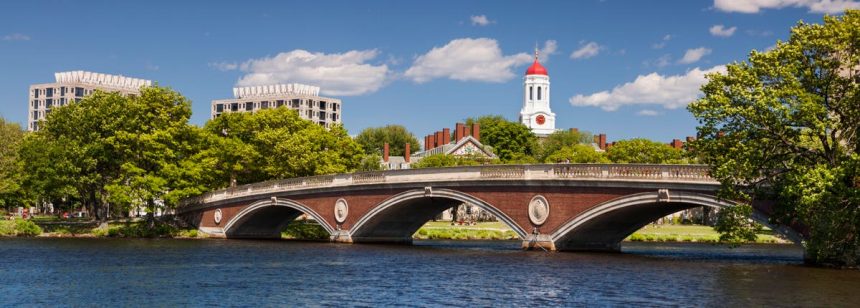The U.S. Department of Education is starting a civil rights investigation into Harvard University’s use of legacy and donor preferences in its admission decisions. The probe was revealed in a letter from the Department on Monday that was released by Lawyers for Civil Rights today.
The letter indicated that the Department would investigate: “whether the University discriminates on the basis of race by using donor and legacy preferences in its undergraduate admissions process.”
The letter said the specific basis for the investigation was “Title VI of the Civil Rights Act of 1964 (Title VI), 42 U.S.C. Section 2000d et seq., and its implementing regulation at 34 C.F.R. Part 100, which prohibit discrimination on the basis of race, color, or national origin in any program or activity receiving federal financial assistance from the U.S. Department of Education.”
The probe is a response to an official complaint filed in July by Lawyers for Civil Rights on behalf of three Boston-area groups: Chica Project, African Community Economic Development of New England and the Greater Boston Latino Network, who alleged that Harvard was discriminating against Black, Hispanic and Asian applicants by favoring white candidates with alumni and donor ties.
That complaint was filed shortly after the Supreme Court found that the race-conscious admission practices used by Harvard and the Univeristy of North Carolina, Chapel Hill were unconstitutional.
Subsequent to the Court’s decision in Students for Fair Admissions v. Harvard University and Students for Fair Admissions (SFFA) v. University of North Carolina, attention began to turn to some of the implications for other aspects of the “holistic admission” procedures practiced at many high selective institutions. Legacy admissions, where preference is given to the relatives of prior alumni of a school, has been at the top of the list of concerns.
For example, at Harvard, legacy preferences strongly tilt the playing field in favor of white students — 76% of legacy applicants and 77% of legacy admits at Harvard were white. And one study of Harvard’s admission procedures revealed that legacy applicants were five times more likely to be admitted than students who did not enjoy that status.
According to The Harvard Crimson, Harvard spokesperson Jonathan L. Swain confirmed that the University had been notified by the Department of Education that it had begun an investigation into the university’s use of legacy and donor preferences in admissions.
Swain wrote in a statement to the Crimson that Harvard has undertaken an internal review of its admissions practices.
“Following the Supreme Court’s recent decision, we are in the process of reviewing aspects of our admissions policies to assure compliance with the law and to carry forward Harvard’s longstanding commitment to welcoming students of extraordinary talent and promise who come from a wide range of backgrounds, perspectives, and life experiences.”
He added, “As this work continues, and moving forward, Harvard remains dedicated to opening doors to opportunity and to redoubling our efforts to encourage students from many different backgrounds to apply for admission.”
The Department of Education’s notice letter also indicated that “opening the complaint for investigation in no way implies that OCR has made a determination on the merits of the complaint.” It stated that the role of the OCR is to be “a neutral fact- finder, collecting and analyzing relevant evidence from the Complainant, the University, and other sources, as appropriate.”
Read the full article here





